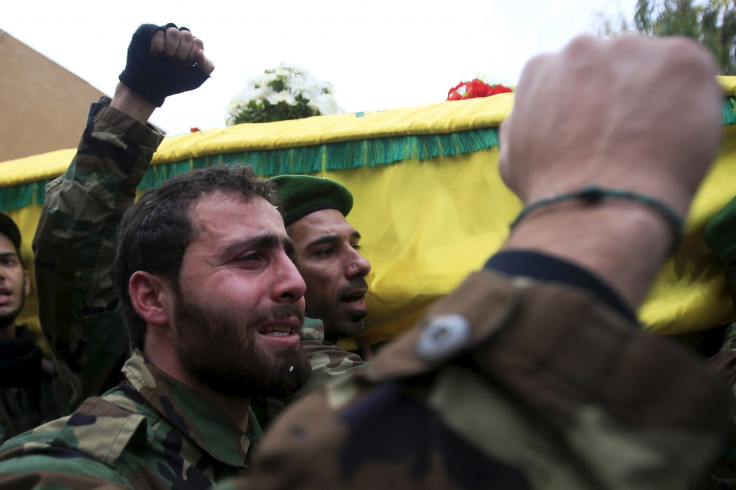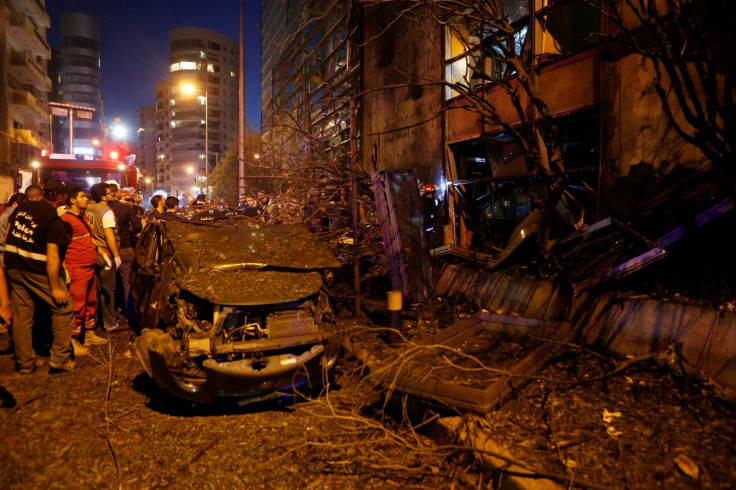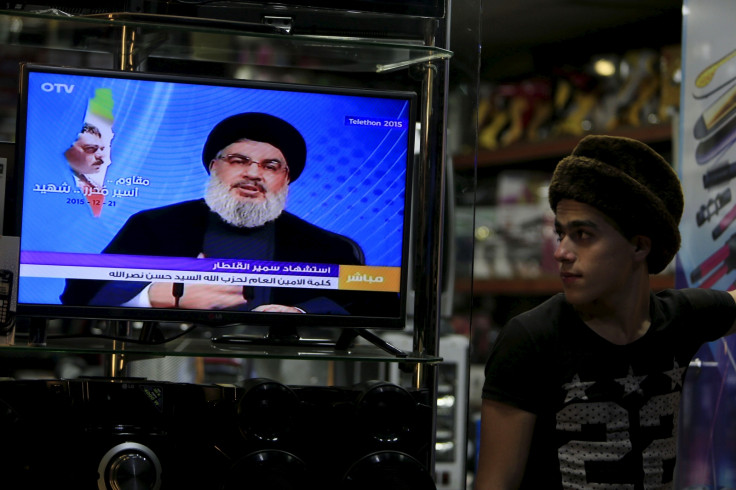Lebanon is broken – is Hezbollah to blame?

When news broke of a bombing in Verdun district on 12 June, many Beirutis feared the worse. It had been only six months since Islamic State (IS) hit the Shia suburb of Bourj el-Barajneh and killed 43 people, and just a few hours since an IS-inspired killer murdered 50 in Orlando, Florida.
But it soon became clear that the attack in Beirut's al-Hamra district did not have the hallmarks of IS. The attack took place when most Beirutis were at home breaking their Ramadan fast, and so nobody was killed - although two security guards were injured. The target, a Lebanese bank, did not fit the IS profile: the terrorist group prefers to inflict mass casualties by hitting markets or mosques.
Focus soon shifted to a group on the other side of the scale from IS, Hezbollah, which controls swathes of Lebanon and has 12 members in the Lebanese parliament.
The US recently announced a raft of new sanctions against the Shia terrorist group, stepping up pressure on Lebanese banks to block accounts linked to Hezbollah or its members or face blacklisting by the American authorities.
Banks threatened
Blom Bank, one of Lebanon's largest, has closed accounts of people with suspected links to Hezbollah since the new US regulations were signed into law by US President Barack Obama, Lebanese media has reported. Hezbollah has not claimed responsibility for the strike in Verdun, but two hours prior, Iranian state media reported that the group had threatened banks that comply with the new rules.
The chairman of Blom Bank has ruled out a link between new US regulations and the bombing, but Lebanon's interior minister, Nouhad al-Mashnouq, told Bloomberg following the attack that the bank was the target. The bomb had been left in a flower pot outside of the bank's headquarters in Beirut. "The bomb was right by the bank's wall, so there is no question about it," Mashnouq said.
"We are waiting for a green light from Iran to have a president."
The latest attack notwithstanding, Hezbollah presents a challenge for the Lebanese state in 2016 as it wrestles with an acute economic downturn, political paralysis and a crippling refugee crisis that has seen over 1.1 million refugees pour into the country from neighbouring Syria. In their own way, the Shia terrorist group led by Hassan Nasrallah has a role in all three.
In two of these cases, that role is more indirect. The group has been fighting alongside the Bashar al-Assad regime in Syria since early on in the war and while some see their bolstering of a murderous dictator as prolonging the conflict, others point out that they have largely secured the Lebanese border and prevented IS fighters from pouring into Lebanon.

Likewise, while the new bank restrictions imposed by the US are undoubtedly adding to Lebanon's economic woes - hitting not only the group but by extension many of Lebanon's Shia community - the war in Syria has cut the country off from its largest trading partner and one of its few export routes to the wider Arab world. Hezbollah alone cannot be blamed for Lebanon's economic turmoil.
That said, Hezbollah's involvement in Syria is believed to be behind the decision of Saudi Arabia to put $4bn of aid into the Lebanese army, which relies on support from both Riyadh and the US. Hezbollah is backed by Iran, Saudi Arabia's biggest regional rival, and the spat has seen tourism from the Gulf drop off almost entirely at a time when Lebanon needs tourist dollars more than ever.
Blame for the political stalemate, which has seen Lebanon without a president for over two years, is being laid firmly at the feet of Hezbollah and its allies. The parliament needs a two thirds quorum in order to elect a president and Hezbollah and other affiliated parties have been able to sabotage the process, say critics, by removing themselves from the chamber every time it comes to a vote.
"We are waiting for a green light from Iran to have a president," Nabil de Friege, Lebanon's minister of state for administrative reform and a Future Party MP, told IBTimesUK in Beirut, alluding to Tehran's funding and support for the Shia group.
As a result of this stalemate, Lebanon has been governing as "a presidency of 128" since 2014, with the result that nothing can be done. Lebanon has not had a budget for 12 years because Hezbollah object to a small portion of the Ministry of Justice funds that are contributed to the investigation of the assassination of Rafik Hariri in 2005 – widely believed to have been carried out by Hezbollah on the order of Assad.
For de Friege, it is a source of frustration that political bodies in the West, such as the EU, distinguish between dealing with Hezbollah's military wing and dealing with its politicians. He said to treat the group as a sort of Lebanese Sinn Fein (the political wing of the IRA) is a fiction. "There's no military branch [versus] a political branch of Hezbollah: there is just Hezbollah," he said.
But it is telling how much members of the parliament, indeed, even fellow ministers, disagree. Asked who he thought was responsible for the 12 June bombing in Beirut, Hisham Jaber - an independent Shia MP - said: "To me it is a little convenient. [I think] they were framed." Pressed on who would frame Hezbollah, he urged reporters to read a recent Jerusalem Post. "So you mean Israel?" we asked: "Probably," Jaber replied.

On the Lebanese street, opinions vary widely, but a surprising number of non-Shia (but non-Sunni) Lebanese still talk fondly of Hezbollah because of its willingness to fight Israel in the south. Although the 2006 war caused catastrophic destruction to the country, Hezbollah is considered to have won. Likewise, many Lebanese appreciate that the Shia militia is a useful bastion against IS.
Others point out that in the Shia communities and Hezbollah strongholds in southern Beirut, patience for the group is wearing thin. Assad's war in Syria has seen many young Lebanese fighters killed and while the group is keen to present these men as shuhada (martyrs) akin to those lost fighting Israel in 2006, Hezbollah's role in the Syrian war more difficult to see as a war of resistance.
A local journalist told IBTimes UK that while in the past Hezbollah would invite journalists to interview the families of its martyrs, the group recently banned parents of young fighters killed in Syria from talking to the press. Hezbollah knows it is fighting a public relations war as well as a military one and local media in Lebanon claim that the group is massively understating its casualties in Syria.
When you are dealing with somebody who has an army behind them - you cannot forget that.
For de Friege, Lebanon cannot move forward on any of its various challenges while Hezbollah acts unilaterally. Just like its war with Israel in 2006, Hezbollah took the decision to enter the Syrian war on the side of Assad without a thought of consequences for Lebanon: the 2006 war with Israel cost the government an estimated $5bn in damages and lost income as well as killing 1,200 people.
"It is not for [Hezbollah] as a party to be making that decision - it is the whole country. We were not prepared for it. They are now going to Syria without dealing with the government. We are [left] in the middle," he said.
He added that while Hezbollah is part of the government, its huge, well-armed militia gives it significantly more clout in the Lebanese political system: "When you are dealing with somebody who has an army behind them - you cannot forget that."
Orlando Crowcroft was in Lebanon courtesy of the European Journalism Centre.
© Copyright IBTimes 2025. All rights reserved.






















